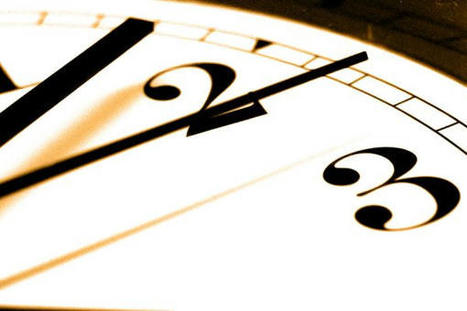
|
Scooped by
American Institute Health Care Professionals
onto Stress Management July 9, 2013 3:03 PM
|
Get Started for FREE
Sign up with Facebook Sign up with X
I don't have a Facebook or a X account

 Your new post is loading... Your new post is loading...
 Your new post is loading... Your new post is loading...
Holiday burnout is here. Here, a doctor explains how to avoid & manage Thanksgiving or Christmas stress, anxiety and dread.
American Institute Health Care Professionals's insight:
How to Avoid & Manage Holiday Stress, Anxiety & Burnout | KCM
Understanding burnout Please also review AIHCP's Stress Management Program
Thinking about surgery generally causes fear and anxiety among patients. These negative feelings may affect the healing process. This study aimed to investigate the effects of a stress ball on surgical fear, anxiety and comfort among patients undergoing cholecystectomy. This randomized controlled study was performed with 90 patients from 03 April to 30 November 2024 in the preoperative waiting unit of an operating room in a public hospital. The intervention group received stress balls before surgery, and the control group received no intervention. The participants were randomly allocated to the intervention and control groups. Data were collected before and after the intervention via the Patient Description Form, Surgical Fear Questionnaire, Visual Analog Scale-Anxiety (VAS-A) and General Comfort Questionnaire. The data were analysed via the SPSS version 27.0 program. Descriptive statistics, t tests, Pearson chi-square tests, and stepwise multiple linear regression were applied, with significance set at p < 0.05. In terms of the measures taken after the stress ball intervention, patients in the intervention group had significantly lower surgical fear (t = 8.607; p < 0.001) and anxiety (t = 10.776; p < 0.001), whereas the general comfort level was greater (t = 15.765; p < 0.001). When the surgical fear subscales were investigated, the intervention group had lower values for both short- and long-term surgical fear than did the control group (t = 8.480 and 8.613; p < 0.001). Stress balls appear to be effective, low-cost, mobile and practical tools for reducing preoperative fear and anxiety while increasing patient comfort. Their integration into routine nursing practice as a nonpharmacological intervention could contribute to better emotional preparedness and potentially improve overall surgical outcomes. NCT06345768 (Registration date:02.04.2024) https://clinicaltrials.gov/study/NCT06345768 .
American Institute Health Care Professionals's insight:
Effect of stress ball use before cholecystectomy surgery on surgical fear, anxiety and comfort of patients: a randomized controlled trial | BMC Nursing | Full Text
Stress balls Please also review AIHCP's Stress Management Program
According to research from the University of Konstanz in Germany, just 10 minutes of massage is enough to increase relaxation. Here's what they found.
American Institute Health Care Professionals's insight:
Exactly How Many Minutes Of Massage You Need To Relax The Nervous System
Relaxing the nervous system Please also review AIHCP's Stress Management Program
Adult Intermittent Explosive Disorder Treatment & Management Guide Released
American Institute Health Care Professionals's insight:
Adult Intermittent Explosive Disorder Treatment & Management Guide Released
Intermittent Explosive Disorder Please also review AIHCP's Anger Management Program
Background Professional occupations for the healthcare workers are usually rife with occupational stress, especially when job demand exceeds the capabilities of the worker and workplace support. The effects of this condition include burnout, low well-being, and low-quality care. Accordingly, using self-efficacy theory of Bandura, the study appraises the impact of self-efficacy-based education intervention on stress management among health center employees of Ramhormoz County in Iran. Methods The quasi-experimental study was conducted on a sample of 103 employees drawn from urban and rural health centers, who were clustered for randomization into an intervention group (n = 49) and a control group (n = 54). The intervention constituted eight weekly 45-minute face-to-face self-efficacy sessions spread over two months. Before and two months after the intervention, data were collected with the Parker and DeCotiis Occupational Stress Questionnaire and the Schwarzer’s General Self-Efficacy Questionnaire. Data analyses were conducted using paired, independent t-tests, and Mann-Whitney U-test using SPSS 27; a level of significance was set at p < 0.05. Results Before the educational intervention, there were no significant differences in terms of job stress (p = 0.107), occupational anxiety (p = 0.280), occupational stress (p = 0.181), and self-efficacy (p = 0.176) between experimental and control groups. But after the intervention, there were significant differences between the groups in terms of job stress (p = 0.012), occupational stress (p = 0.034), and self-efficacy (p = 0.038). No significant difference found in occupational anxiety (p = 0.473). Conclusion The effectiveness of the self-efficacy-based educational intervention was evident in its positive effect on stress management and coping techniques among health center employees in the Ramhormoz county. The study emphasized that training in self-efficacy could be beneficial for enhancing self-efficacy and reducing work stress in the interventional group-by linking individual competence to job adoption and stress management. Trial registration This study was registered with the Iranian Registry of Clinical Trials (IRCT), registration number IRCT20211222053487N1, on 2023-09-26.
American Institute Health Care Professionals's insight:
Self-Efficacy–Based intervention for stress management in health centers employees | BMC Psychology | Full Text Managing stress Please also review AIHCP's Stress Management Program
The Pennsylvania Department of Health says managing stress daily can help prevent long-term, or chronic, stress, which can contribute to worsening health problems. Officials recommend incorporating small steps into daily […]
American Institute Health Care Professionals's insight:
Health Officials Share Stress Management Tips to Prevent Long-Term Health Issues
Reducing stress for long term success Please also review AIHCP's Stress Management Program
Whether it’s before or after working out, or as a break between exercise days, stretching can provide huge benefits and boost your performance. A sports medicine specialist offers a stretching routine and ways to improve your flexibility.
American Institute Health Care Professionals's insight:
9 Stretching Exercises and Benefits
Exercise benefits Please also review AIHCP's LIFE COACHING program
Early family dynamics can shape our understanding of what abuse looks like. These false beliefs explain why so many people often miss the warning signs.
American Institute Health Care Professionals's insight:
Common Myths About Abuse That Keep Survivors in Denial
Understanding abuse Please also review AIHCP's Anger Management Program as well as its Trauma Informed Care Program
American Institute Health Care Professionals's insight:
Anger and Rage Rooms
Releasing emotion Please also review AIHCP's Anger Management Program
From deep abdomen breathing to chewing gum, here are some science-backed stress-management tips
American Institute Health Care Professionals's insight:
Three ways to relax (that don’t involve art)
Finding other ways to relax Please also review AIHCP's Stress Management Program
Having a hobby is an effective way to manage stress; it can also increase overall physical and mental wellbeing
American Institute Health Care Professionals's insight:
How hobbies reduce stress
Reducing stress through hobbies Please also review AIHCP's Stress Management Consulting Program
From
www
A recent study found that a common upper-body stretch can quickly lower blood pressure. We spoke to an expert about how you can make the most of it.
American Institute Health Care Professionals's insight:
This 10-Second Stretch Brings Instant Stress Relief
Stretching and stress reduction Please also review AIHCP's Stress Management Program
Feeling in control may be the key to conquering daily stress. Penn State researchers found that people were 62% more likely to resolve everyday hassles on days when they felt greater control. This link grew stronger over time, suggesting we get better at managing stress as we age. Simple actions like setting priorities and reframing challenges can help boost that sense of control and reduce overall stress.
American Institute Health Care Professionals's insight:
Feeling stressed? Science finds a simple way to take back control
Reducing stress Please also review AIHCP's Stress Management Program |
There comes a time in the semester when every college student has hit their limit. When all you want to do is lie back, relax
American Institute Health Care Professionals's insight:
How to Tackle Burnout as a College Student
The power of burnout Please also review AIHCP's Stress Management Program
A recent study set to be published in BMC Nursing exami […]
American Institute Health Care Professionals's insight:
Mindfulness-Based Stress Reduction Linked to Improved Sleep and Reduced Anxiety in Family Caregivers of Cancer Patients - GeneOnline News
Mindfulness and stress reduction Please also review AIHCP's Stress Management Program
New research challenges the idea that venting anger provides relief. Scientists now suggest that shouting or hitting objects can actually heighten ang
American Institute Health Care Professionals's insight:
Does venting really help you feel better? New research says it might make anger worse
Managing anger Please also review AIHCP's Anger Management Program
A large meta-analysis of 150 studies involving 10,000 participants found that venting anger doesnt actually reduce rage.
American Institute Health Care Professionals's insight:
Forget Venting, Study Finds Anger Reduced By Something Else
Controlling anger Please also review AIHCP's Anger Management Program
November 10, 2025
American Institute Health Care Professionals's insight:
It's impossible to avoid stress – but here's how leaders can manage it better
Stress is part of life Please also review AIHCP's Stress Management Program
Identifying bullying may seem like the job of schools, but therapists can help by learning to make it a compulsory assessment category and save a child from neuroses to psychoses.
American Institute Health Care Professionals's insight:
What Therapists Should Know About Bullying
Understanding bullying Please also review AIHCP's Behavioral Health Certifications
From
ouraring
New to Oura's suite of stress features, Cumulative Stress helps you understand the impact of long-term chronic stress on your health.
American Institute Health Care Professionals's insight:
Introducing Cumulative Stress: Understanding the Impact of Long-Term Stress
Long term impact of stress Please also review AIHCP's Stress Management program
Social media can push us to the dark side with negative content. A new study finds watching inspiring videos for just three minutes a day can boost your mood and reduce stress.
American Institute Health Care Professionals's insight:
Boost hope and reduce stress with this simple social media trick
Reducing stress Please also review AIHCP's Stress Management Program
Academic stress significantly affects students’ well‐being and academic performance. This study addresses this gap by exploring how academic self‐efficacy mediates the relationship between academic stress and both educational and psychologica
American Institute Health Care Professionals's insight:
Examining the Effects of Academic Stress, Self‐Efficacy, Cognitive–Behavioral Outcomes, Psychological Distress, and Prosocial Behavior: A Moderated‐Mediation Model - PMC
Academic stress Please also review AIHCP's Stress Management Program
Background: Sleep disturbances can significantly impair emotional intelligence (EI), particularly among professionals in high-stress occupations. This stud
American Institute Health Care Professionals's insight:
Frontiers | Enhancing Emotional Intelligence through Sleep Therapy in High-Stress Professionals: A Case-Control Study on Efficacy and Predictive Factors
The importance of sleep in battling stress Please also review AIHCP's Stress Management Program
New research reveals the effectiveness of meditation for maintaining focus.
American Institute Health Care Professionals's insight:
One Easy Way to Stay Focused When You're Stressed | Psychology Today Australia
Staying focused when stressed Please also review AIHCP's Stress Management Training
American Institute Health Care Professionals's insight:
Feeling stressed? Science finds a simple way to take back control
Brainwaves and stress Please also review AIHCP's Stress Management Program |
































#controllingdiabetes #doesstresscausediabetes #stressrelatedhealthissues One of many stress related health issues is diabetes. Does stress cause diabetes? And is managing your stress important in controlling diabetes? As it turns out a poor diet, no exercise and overwhelming stress can lead to diabetes. So as part of a 3 part plan for a healthier you, learn stress management techniques.